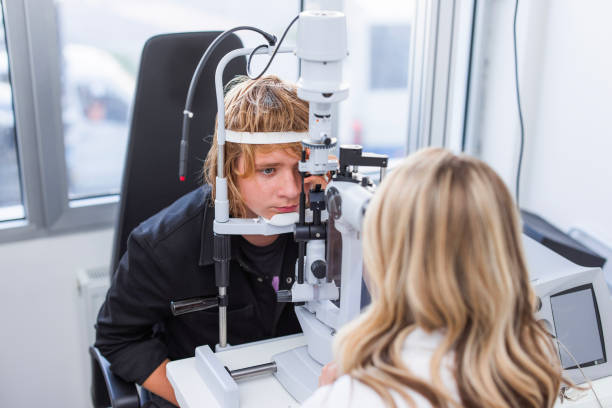Choosing an eye test can be as challenging as picking out a new pair of eyeglasses - there's much to consider! Is your vision blurry? Are you struggling with night driving? Are headaches more frequent? And where do you begin the journey to clear vision, and what steps should you take to ensure the best outcome for your visual health? In this blog post, we aim to answer these questions and more.
The importance of regular eye tests cannot be overstated. It's not just about sharp vision; it's also about guarding against eye diseases and maintaining overall health. A comprehensive eye examination can reveal ailments like glaucoma, age-related macular degeneration, and even wider health issues such as diabetes.
We'll discuss what different types of eye tests examine and how they function, helping you select the appropriate eye test that is tailored to your specific needs and situation. Let’s open the floor to better visual health together!
Why Regular Eye Tests are Essential
Regular eye tests are about more than just updating your prescription; they're about taking a proactive approach to your overall health. They not only help you see clearly but also aid in the early detection of eye diseases like cataract and age-related macular degeneration, many of which may be asymptomatic in their early stages.
Understanding Different Types of Eye Tests
Primary vision tests like visual acuity tests, color blindness tests, and ocular motility tests are designed to assess sharpness of vision, color perception, and eye movement. These are helpful in diagnosing eye conditions like presbyopia, hyperopia, and astigmatism.
The Comprehensive Eye Exam
A comprehensive eye exam is thorough and multifaceted. It includes multiple tests ranging from simple ones like reading an eye chart to complex tests using high-powered lenses to visualize the tiny structures within the eyes.
Pros and Cons of Online Eye Tests
Online eye tests can be a convenient option for quick vision checks. They save time, are accessible from anywhere, and are often inexpensive. But they have their limitations: they can't detect ocular diseases and are no substitute for an in-person, comprehensive eye exam.
When to Opt for Advanced Testing
Advanced eye test, such as OCT scans, provide detailed images of your eyes, giving a more in-depth understanding of your eye health. Such tests are ideal if you're at high risk for certain eye diseases, like glaucoma or macular degeneration.

Eye Tests for Children and Seniors
Children’s vision plays a critical role in their academic performance and social development, so regular eye checks are essential. Seniors, likewise, need frequent eye exams since they are more prone to severe eye ailments.
Conclusion
Choosing the right eye test isn't just about clear vision; it's about maintaining comprehensive physical health. With the array of tests available today, you can confidently ensure optimal visual health, whether it's a routine check, diagnosing a potential issue, or monitoring existing conditions. Regular eye examinations are a critical part of health care - don’t see them as an option, but rather as an essential preventative health measure. There's a whole colorful world waiting to be seen out there, so let’s ensure you see it with clarity!

0 comments:
Post a Comment